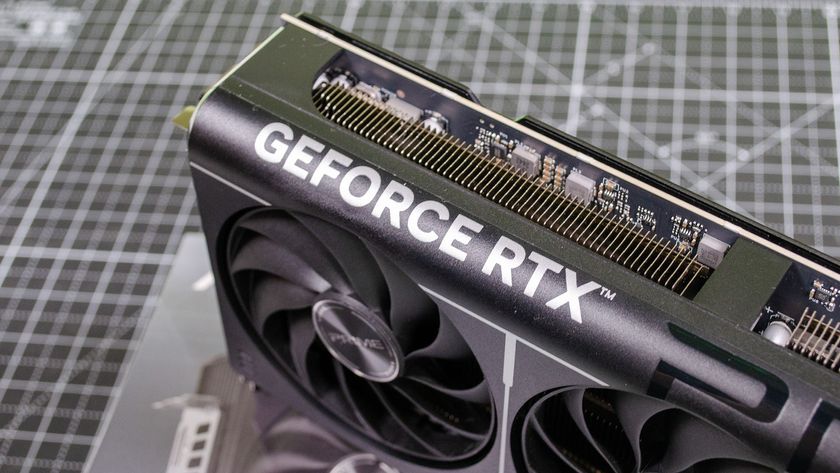AMD's next-gen Big Navi GPU clock speeds should concern Nvidia
The battle between industry titans continues

AMD has been making some fairly bold promises of late, showing no fear at the release of Nvidia's latest generation of graphics cards. With new leaks teasing some monstrous GPU clocks on the Navi 21 XT that will power the Radeon RX 6800 XT graphics card, it may not actually be all talk.
- Leaked AMD Big Navi benchmarks could have Nvidia worried
- AMD vs Nvidia 2020: which makes the best graphics cards?
- The best gaming monitor 2020: the 10 best gaming screens of the year
New information is coming from Patrick Schur, who reports that the custom Asus ROG Strix Radeon RX 6800 XT has been tested in 3DMark 11 with GPU clocks breaching 2.5GHz.
Here are some results with a TGP of 255 W. Don't ask me what's the difference between 255 W and 289 W models.Probably more OC headroom and more stable boost clocks? 🤔System 2Avg: 2298 MHzMedian: 2357 MHzMax: 2509 MHzSystem 3Avg: 1993 MHzMedian: 2342 MHzMax: 2557 MHzOctober 25, 2020
Early scores
The information is based on engineering board samples, so final clocks may vary, but it’s interesting just how far you may be able to push AMD's Big Navi GPUs. In an update to his original post, Schur claimed that the ROG Strix Radeon RX 6800 XT was running at clock speeds higher than 2.3 GHz most of the time, though we’re sure that with some customizations to fan speeds we'll see a stable 2.4 - 2.5GHz.
One issue we see here is that these tests on the Radeon RX 6800 XT are apparently using early drivers, so we’ll hopefully see steadier (and higher) GPU clock speeds once the cards are released into the wild.
When AMD finally unveils its new graphics cards, we’ll be thoroughly testing them to see just how good they are when we get our hands on them
Get daily insight, inspiration and deals in your inbox
Sign up for breaking news, reviews, opinion, top tech deals, and more.
Jess is a former TechRadar Computing writer, where she covered all aspects of Mac and PC hardware, including PC gaming and peripherals. She has been interviewed as an industry expert for the BBC, and while her educational background was in prosthetics and model-making, her true love is in tech and she has built numerous desktop computers over the last 10 years for gaming and content creation. Jess is now a journalist at The Verge.
Most Popular








